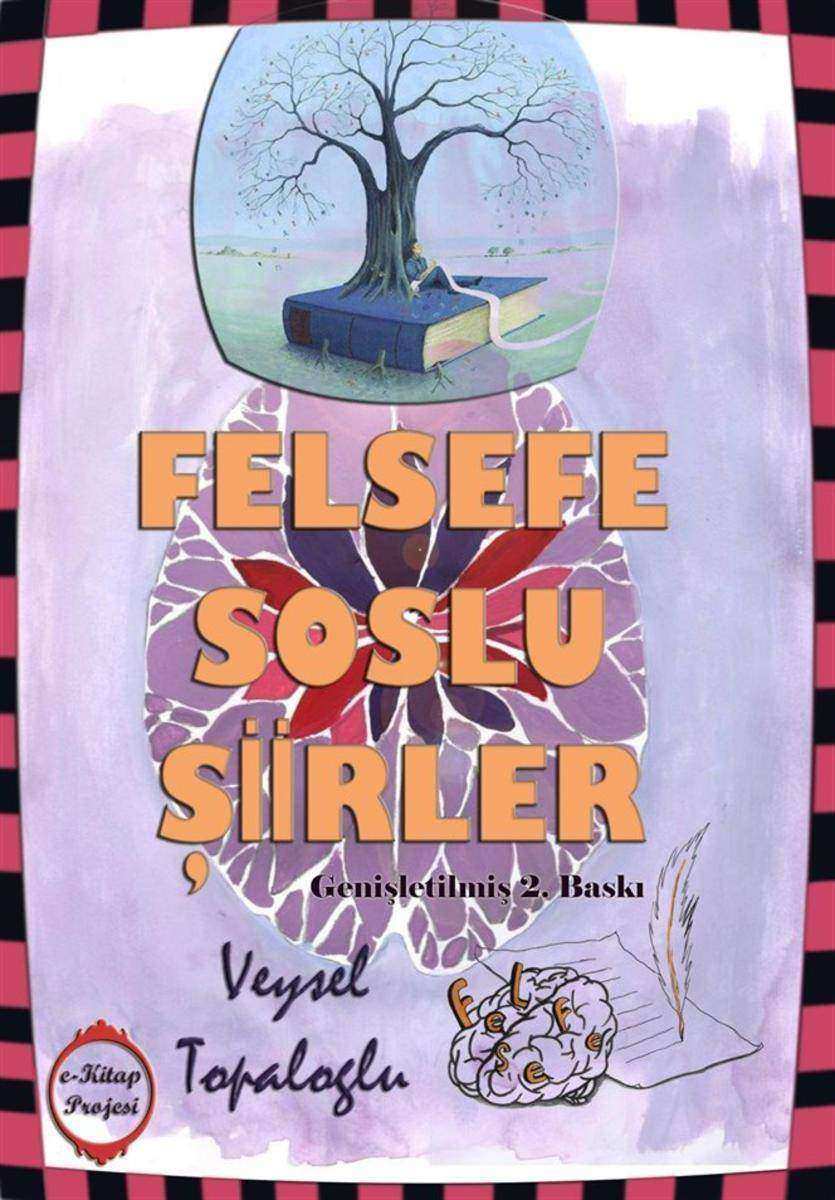
Felsefe Soslu ?iirler: (Geni?letilmi? 2. Bask?)
¥23.14
YAKINDA SIRA G?KY?Z?NE DE GELECEK! ? ?ilahi nizama(Yarat?l?? Yasalar?na) g?re, yeryüzünün hi? bir yeri; hi? bir insana ve zümreye ait de?ildir. ?nsani düzene g?re ise ger?ek tamamen farkl? olup yeryüzü parsel, parsel ya?malanm?? olup nehirler, g?ller, denizler ve hatta k?talar bir avu? az?nl??a ya da zümreye hizmet etmektedir. S?z konusu bu az?nl?klar dünyan?n kaynaklar?n? ?e?itli y?ntemlerle dev?irip s?mürmektedirler. ??S?mürü sadece do?al kaynaklarla s?n?rl? olmay?p dünya üzerinde ya?ayan tüm canl?lar? da kapsamaktad?r. Bundan, tek hücreli organizmalar da nasibini almakta ve efendilerinin ahlaks?z ama?lar?na hizmet etmeye mecbur kalmaktad?r. Bu azg?n küresel s?mürgeciler, insanlar?n beden ve beyin gü?lerini s?mürdükleri yetmezmi? gibi ?imdilerde zihinlerini de ele ge?irmeye y?nelik yo?un bir gayret i?indedirler. ??S?mürgeciler, kaynaklardan dev?irdikleri de?erleri ?nce paraya daha sonra ise parayla birlikte bu kaynaklar? da kullanarak gü? dev?irmekte olup ?bu b?yle katlanarak devam etmektedir. Küresel emperyalistler, s?mürü düzenini hepimizin iyi bildi?i yedi(S) arac?l???yla, yani onlar? de?er dev?irmekte kullanarak ger?ekle?tirir. ? Bunlar s?ras?yla: Su (G?da),Sa?l?k, Seks, Silah, Sanat, Spor ve Siyaset olarak s?ralanabilmektedir. S?ra gü? dev?irmeye gelince bu s?ralamada siyaset birinci s?raya ge?mektedir. Sebebine gelince s?mürgeci en ?ok siyaseti ?veya baz? siyaset?iyi, ?baz? siyaset?iler ise bu sayd?klar?m?z?n tümünü birden kullanmaktad?rlar. ??Birde s?mürgecilerin elinde, onlar?n ?ok sevdikleri bir ba?ka (S) olan ad?na Sava? denilen alt?n (S) vard?r. Sava?lar?n ara?lar? ise sizlerin de ?ok iyi bildi?i gibi temel iki unsura dayanmaktad?r. Bunlar, dindarl?k ve kindarl?k olup toplumlar ayr??t?r?l?p dü?man kamplara b?lüne bilmeleri i?in; ya inan? farkl?l?klar?, ya da tarihin bir d?neminde atalar?n?n birbirlerine yapt?klar? yanl?? davran??lar? k?rükleyerek dü?manl?klar? yaratmaktalar. Sonras?nda da dü?manla?t?r?lan toplumlara gaz verirler, onlar sava??rken bunlar bir yandan silah satarken bir yandan da ya?malar?n?(has?latlar?n?) hazinelerine katarlar? ???nsanlar?, insanl???ndan ??karan, herkesi paran?n pe?inden ko?turan; en ac?s? da para i?in her türlü de?erlerinden vazge?ebilmeyi ba?ar? gibi sunan bu ?arp?k sisteme kar??: Bizler akl?m?z? ba??m?za toplamaz ve s?mürgecilerin de?irmenine su ta??maya devam etmeyi sürdürürsek; ?o zaman g?kyüzüne iyi bakal?m! ?ünkü; korkar?m :Torunlar?m?z g?kyüzünü b?yle mavi olarak bir daha zor g?rebilecekler !!! ?SADEKUL ? Y ? Z L E ? M E ( MAN?FESTO ) ?- G ? R ? ? ?TOPLUMSAL PAST?R?ZASYONLAR VE SAKINCALARI "Sosyolojik Past?rizasyon ve Yeni Bir Düzen ?zerine ?zgün Yakla??m" Hepimizin ?ok iyi?bildi?i gibi; kurals?z ya?ayan insan topluluklar? tarih i?erisinde kurall? ya?ama ge?erek; birer düzen toplumlar? haline gelmi?lerdir ??te: Toplumlar?n egemen oldu?u bu topraklar üzerinde ya?ayan bireylerinin hak ve ?zgürlüklerinin s?n?rlar?n? belirleyen bu tek siyasi erkin ad?na devlet denilmektedir. Bu ?rgütün, en temel g?revi yurtta?lar?n?n i? ve d?? güvenli?ini sa?lamak olmakla birlikte; devlet bu sorumlu?unu yerine getirirken ise her zaman herkese kar?? tarafs?z ve e?itlik?i olmak mecburiyetindedir. ?zellikle de i? güvenli?i sa?larken; hem kendisinden yurtta?lar?n?, hem de yurtta?lar?n? yurtta?lar?ndan korumakla yükümlüdür. Ayr?ca bireylerin beden ve ruh sa?l??? da tamamen bu ?rgütün güvencesinde olup devletler her ko?ulda ki?ilerin beden bütünlü?ü ile zihin sa?l???n? da korumaktan da soruludurlar.
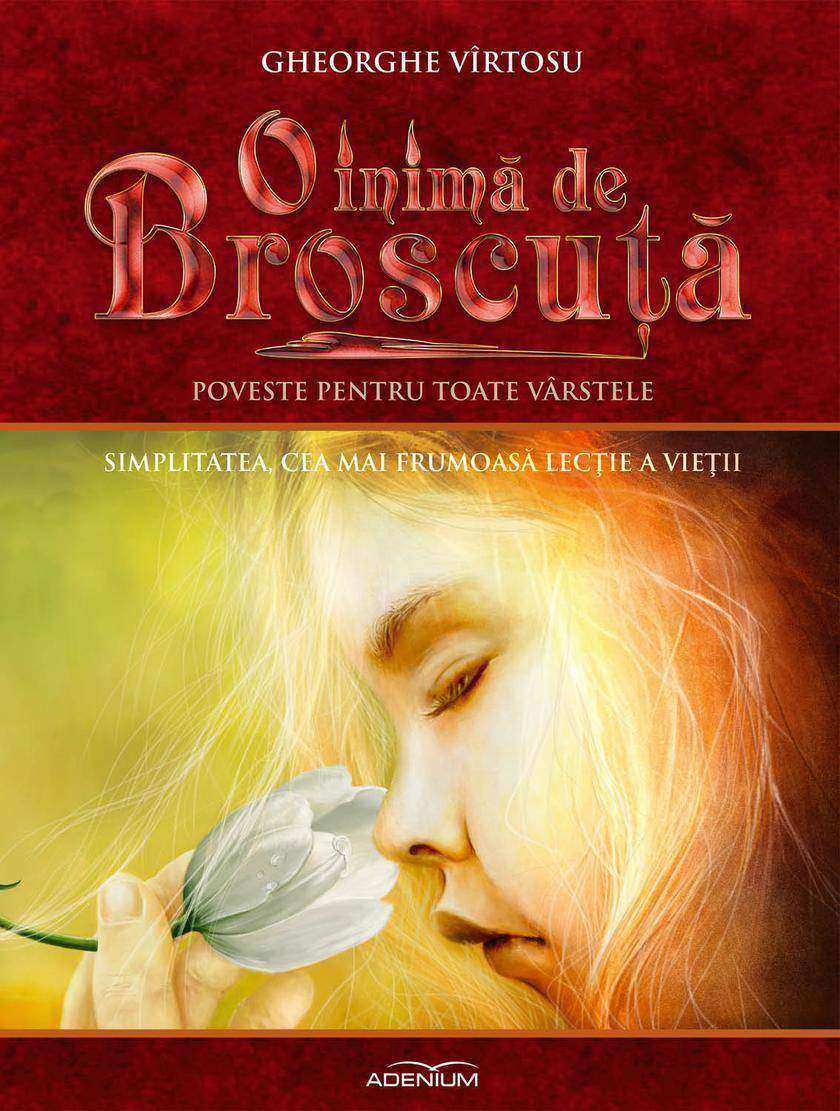
O inim? de Broscu??. Volumul 8. Simplitatea, cea mai frumoas? lec?ie a vie?ii
¥81.67
Simona Drgan are fora de a supune textele de autoritate asupra crora se apleac unei lecturi personale, “vede“ ideile n intricaia lor originar, le restructureaz n conformitate cu propriul ei scenariu. in sa apreciez faptul c, n ciuda tematicii sale, lucrarea de fa nu este arid, nu sufer (dect n proporii acceptabile) de acea placiditate stilistic, inevitabil analizelor teoretice. Capacitatea de sintez, spiritul critic, precizia terminologic, luciditatea i supleea, calmul operator, toate acestea atest o cert vocaie teoretic“. (Mircea Martin)Cum se ntmpl cnd o ecuaie care a umilit cerbicia multor duzini de matematicieni i afl mintea capabil s-i dea de capt, mprtim n cazul de fa bucuria unei revelaii: pare ca Foucault i consorii, cei ce n loc de scrieri i texte au inventat uzul sofisticat al scriiturii i discursului, au ntlnit n autoarea de fa un autentic partener de dialog. Avem a face cu o lucrare fr caracter compilativ, demonstrnd o amprent personal, o anumit prospeime a observaiei directe, un soi de entuziasm agreabil al dezbaterii de idei, care se transmite i cititorului, smulgndu-l reflexelor lui sceptice ori obosite“. (Paul Cornea)n opinia mea, un merit major al Simonei Drgan este acela de a reui, ntr-o manier indubitabil personal, sa exprime, cu o elegan a claritii ce se remarc de la prima la ultima pagin a lucrrii, unele dintre cele mai complicate, ca sa nu spunem “stufoase“, idei formulate vreodat n perimetrul tiinelor filologice“. (Ciu Dobrescu)
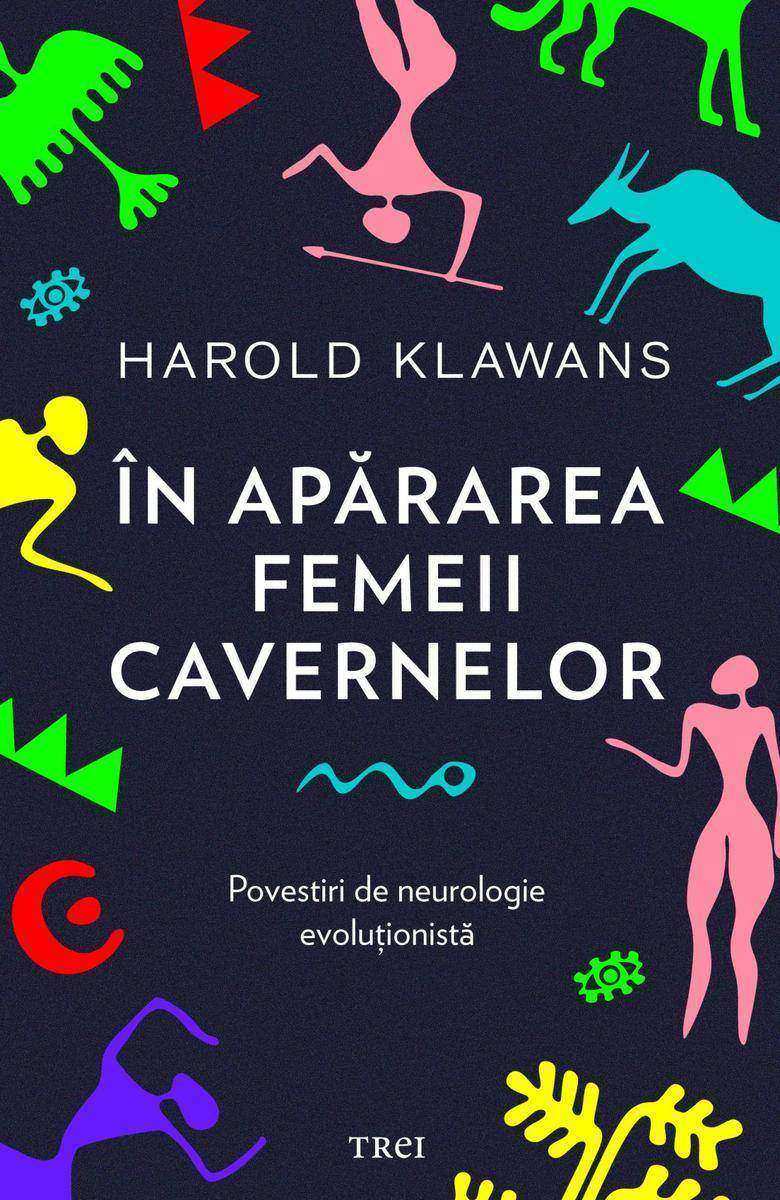
?n ap?rarea femeii cavernelor
¥65.32
Proiectul acestei cri m frmnta de mai muli ani. n ultimul timp am tot cutat motivaii pentru care o asemenea carte merit s fie scris. Iat ce am gsit.n primul rnd, chiar dac printr-o fereastr foarte ngust, ea este o mrturie a ultimilor 20 de ani. Conine o frm din istoria acestor dou decenii, mici instantanee ale devenirii Romniei dup 1989.n al doilea rnd, exist n mintea fiecrui romn – i aici m includ i pe mine – preconcepia c toate afacerile postrevoluionare sunt mnjite, nscute din privatizri dubioase sau dezvoltate la umbra unor reele de influen care-i ntind rdcinile n era comunist. Povestea din aceast carte arta contrariul. S-au putut constitui i iniiative independente i curate, cum sunt convins c mai exist cu miile. Povestea de fa poate fi o contribuie la schimbarea de mentalitate, att de necesar pentru intrarea n normalitate.“ (Mihail Penescu)
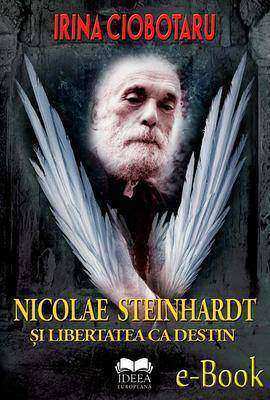
Nicolae Steinhardt ?i libertatea ca destin
¥116.01
Un studiu provocator despre un altfel de Macedonski. Informa?ii inedite, aspecte mai pu?in cunoscute din via?a acestui important poet, ce face o incitant? paralela cu Eminescu, sunt menite s?-l repun? ?n luminile rampei pe un creator situat de exege?i ?n umbra literatilor mari. Cartea se adreseaz? elevilor, studen?ilor, precum ?i publicului larg de cititori.

Emigra?ia belarus?, caucazian?, rus? ?i ucrainean? ?n timpul celui de al Doilea
¥61.83
Povestea scriitoarei britanice care ?i-a g?sit fericirea ?n inima Transilvaniei Arabella McIntyre-Brown a ?nceput s? scrie o carte sincer? ?i antrenant?, plin? de umor, despre aventura mut?rii dintr-un mare ora? britanic ?ntr-un sat din Carpa?i, ?i a sf?r?it prin a compune o veritabil? scrisoare de dragoste pentru Rom?nia. A?a cum magia Transilvaniei rurale a fermecat-o profund pe autoare, volumul ?Din Liverpool ?n Carpa?i” va cuceri, f?r? ?ndoial?, inimile tuturor cititorilor rom?ni. ?n ultimii ani, mai mult de 200.000 de rom?ni au plecat s? locuiasc? ?n Marea Britanie, iar din Anglia au venit ?n Rom?nia doar c?teva mii de britanici doritori s? se stabileasc? aici. Cei mai mul?i au ales Bucure?tiul sau alte ora?e mari; numai c??iva au descoperit atmosfera deosebit? a mediului rural. Scriitoarea ?i jurnalista Arabella McIntyre-Brown este una dintre ei. A luat aceast? hot?r?re ?n urma unor decese ?n familie, dar adev?rul din spatele plec?rii din Anglia ??i are r?d?cinile ?ntr-o copil?rie dificil?. La v?rsta de 50 de ani, tocmai c?nd ?ncepuse s? se bucure de un oarecare succes ca editor de carte ?i autor, ?i-a v?ndut casa din Liverpool, abandon?ndu-?i via?a citadin?, de om ocupat, ?i s-a aruncat ?n acest labirint care este Europa de Est. A p?r?sit tot ce-i era familiar ?i s-a mutat ?n Rom?nia, pentru a-?i tr?i via?a ?n solitudine. Astfel, din 2010, Arabella McIntyre-Brown nume?te ?acas?” aceast? parte a lumii m?rginit? la sud de Mun?ii Carpa?i, pe care prietenii r?ma?i ?n Anglia o puteau vedea pe Google Maps doar ca pe o p?tur? verde, difuz?. Decizia de se muta dintr-un ora? britanic animat ?ntr-o caban? construit? doar pe jum?tate, aflat? pe un pov?rni? al mun?ilor, ar fi putut fi un dezastru. Autoarea are peste 50 de ani, nu are un venit stabil, nici pensie sau un plan de rezerv?. ?n ciuda fapului c? toate indiciile sugerau c? avea s? e?ueze lamentabil, ast?zi poate afirma f?r? rezerve c? a descoperit secretul fericirii. Pentru ea, paradisul este satul transilv?nean M?gura, aflat cam la altitudinea la care se afl? cele mai ?nalte piscuri muntoase din Marea Britanie. ?... un fel de ghid pentru propriile c?l?torii c?tre sine – dac? ve?i avea curajul s? v? aventura?i pe un astfel de drum.” – Sir Ranulph Fiennes

?ngrijirea sugarului ?i a copilului.
¥114.37
n lucrarea sa, care a ctigat premiul Pulitzer n 1981, Robert K. Massie prezint detaliat viaa acestui captivant personaj istoric i evideniaz evenimentele cruciale care au transformat un biat ntr-o legend, inclusiv cltoriile sale incognito prin Europa, curiozitatea sa de nepotolit fa de obiceiurile occidentale, obsesia pentru mare i constituirea mreei flote ruseti, modul n care a creat o armat de nenvins i relaiile sale cu cei pe care i-a iubit cel mai mult: Ecaterina, iubita sa tandr, i Menikov, prinul fermector i lipsit de scrupule care a ajuns la putere prin intermediul prieteniei cu Petru. Un loc special n carte l ocup relaia dificil a lui Petru cu fiul su Aleksei, care a fost judecat i condamnat la moarte n 1718. Autorul nu neglijeaz nici viaa politic, social, cultural i religioas din Rusia pe parcursul jumtii secunde a secolului al XVII-lea i primei pri a secolului al XVIII-lea. Astfel, Massie i conduce cititorii n lumea ruseasc medieval i premodern schimbat iremediabil, uneori n mod violent, de reformele iniiate de monarhul autocrat Petru cel Mare. Fie c sunt schimbri care au afectat n primul rnd individul, precum obligativitatea tierii brbilor, sau iniiative care au vizat consolidarea forei statului, de exemplu, nfiinarea marinei ruseti i a Sankt-Petersburgului, reorganizarea administrativ inspirat de modelul occidental, toate acestea au transformat Rusia medieval ntr-un stat modern. n acelai timp, multe dintre reformele din timpul lui Petru au avut o influen ndelungat asupra societii ruseti. Cartea lui Massie nu ofer doar o perspectiv intern a societii ruseti, ci urmrete i aciunile lui Petru n planul politicii externe, la nivel european sau chiar global. Astfel, dou dintre cele cinci seciuni ale lucrrii se ocup de relaiile Rusiei cu celelalte state europene. Poate cel mai important conflict din timpul domniei lui Petru a fost cel mpotriva Suediei. n urma Marelui Rzboi Nordic (1700-1721), Rusia a obinut o serie de teritorii (Estonia, Livonia i Ingria). Totodat, deznodmntul acestui lung rzboi a nsemnat i ascensiunea Rusiei la rangul de putere continental. Pe plan militar, ns, domnia lui Petru nu a fost scutit de eecuri. Campania arului din Moldova, pornit mpotriva Imperiului Otoman, s-a terminat prin nfrngerea de la Stnileti (1711). Nu de puine ori, autorul american i aduce n prim-plan pe actorii politici importani din Europa sfritului secolului al XVIII-lea i nceputului secolului al XVIII-lea. Regi, comandani militari, nobili, toi sunt prezentai cititorilor, care pot astfel nelege mai bine aciunile sau atitudinile lor. arul Aleksei, tatl lui Petru, Ludovic al XIV-lea, Wilhelm de Orania, Carol al XII-lea, Augustus de Saxonia, ducele de Marlborough, prinul Eugeniu de Savoia sau feldmarealul Rehnskild se numr printre figurile ilustre descrise de Massie. De regul, atunci cnd analizeaz anumite perioade, istoricii pun accentul pe rolul proceselor i al fenomenelor de lung durat, lsnd cumva n umbr personalitile excepionale. Tocmai pentru a sugera impactul lui Petru cel Mare asupra istoriei Rusiei, n special, putem face apel la istoria contrafactual i s ne ntrebm: Cum ar fi artat Rusia contemporan dac n-ar fi existat Petru cel Mare
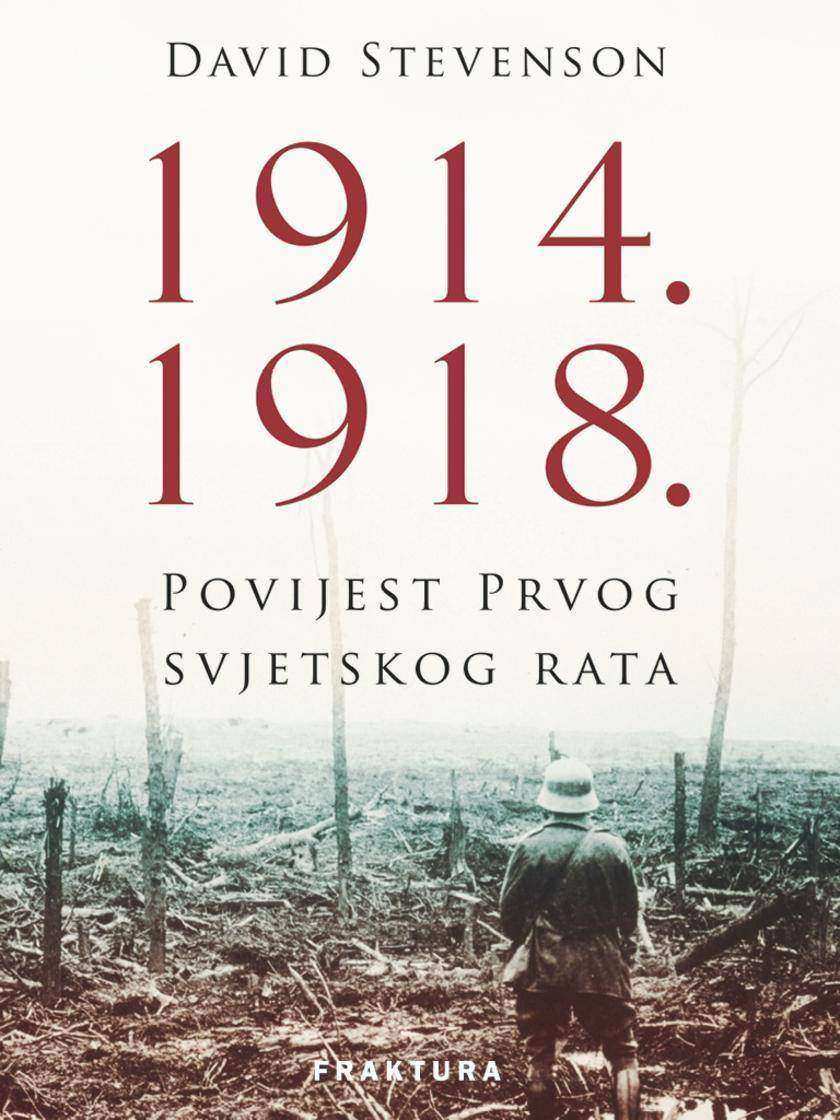
1914.–1918.: Povijest Prvoga svjetskog rata
¥255.39
Iat?, ?n cuvintele Aurei Christi, curg?nd abundent, din surse ascunse, fluidul vivifiant al poeziei, s? nu ne temem de retorica majusculelor, al marei Poezii. (Nicolae Balota).Aici totul e grav. Nici ludicul, nici parodicul, nici oboseala contextului postindustrial ?i nici tendin?ele destructurante ale postmodernilor nu au trecere. Modernitatea Aurei Christi e una esen?ial?, organic?, refractar? modelor, n?zuind spre reinterpretarea semnelor ?i universaliilor; ?ntreb?rile pe care ?i le pune ea au fost ?i ale inainta?ilor, iar r?spunsurile transcend achizi?iile, relev?nd evolu?ia con?tiin?ei ?n mers, relev?nd evolu?ia unei creatoare de m?na ?nt?i, cu totul personal?. Scrieri mai noi, Labirintul exilului (2000), Elegii nordice (2002) ?i altele confirma consecven?a cu sine a unei con?tiin?e exemplare. (Constantin Ciopraga)M? auzi tu, oare, ?nstr?inato? Am citit poeziile tale la ceas de sear?, pe o teras?, av?nd ?n fa?? colinele Ierusalimului. Eu nu sunt un bun comentator de poezie, cei care au scris despre poezia ta te-au “prins“ foarte bine, ai for??, un sim? rar al tragicului ?i antene pentru transcenden??, f?r? s? cazi (din fericire) ?n ceea ce se cheam? “poezie religioas?“. E un instinct p?g?n care te fere?te de o excesiva “cre?tinare“ a poeziei chiar ?i ?n Psalmi. (Leon Volovici). (fragment dintr-o scrisoare)E simplu: ?l vad pe Dumnezeu ca pe un partener de dialog, cu care ma cert nu rareori. Citesc adesea serile din Noul Testament mai ales; ei, ?i atunci ?ncepe fierberea... Nu prea merg la biseric? dec?t atunci c?nd simt imperios nevoia – adev?r pentru care Mama de pilda m? ceart? c?teodat?. Duc biserica mea cu mine; a?a pot s? m? rog oriunde, oric?nd. Spre deosebire de Cioran, eu cred ca nu Diavolul a f?cut lumea, ci Dumnezeu; doar c? spre sf?r?itul Facerii a obosit un pic; se ?nt?mpl? ?ntruc?tva c? ?ntr-o proza a lui Rilke, ?n care cele doua m?ini ale Domnului se iau la ?ntrecere ?i se pare ca st?nga profit? de oboseala dreptei... M? ?i ?ntreb uneori, pe urmele lui Unamuno: cine sunt eu s?-i cer socoteala lui Dumnezeu pentru ca lumea ?n care tr?im e a?a cum e? (Are dreptul, oare, o g?nganie s?-?i aroge obr?znicia de a se ciond?ni cu El, cu nimeni altcineva dec?t cu El?!!) ?i tot ca Unamuno, invoc?ndu-l pe Oberman, ?mi r?spund: da, c?ci pentru lume, pentru univers eu sunt nimeni, nu ?nsemn nimic, pentru mine ?ns? sunt totul.Gr?dini austere a stat – da, incredibil – ?n sertarele c?torva edituri circa ?apte ani; ani de izolare atroce, de singur?tate dorit?, iubit?, hulit? ?i, iar ?i iar, iubit?... E un volum publicat dup? o perioada de secet?, c?nd mi se p?rea – p?n? la o neagr? m?nie! – ca nu voi mai scrie niciodat? poezie... Nici cartea de debut n-am a?teptat-o at?tea... secole. E un volum care a circulat pe internet, prietenii trimi??ndu-mi mesaje, scrisori, cronici ad-hoc despre cartea mea de psalmi ?n r?sp?r. (Aura Christi)Faptul c? Gr?dinile austere au trecut prin PC-ul meu mi-a prilejuit o bucurie, o tulburare de zile aurorale. Nu m-am putut ab?ine ?i am citit c?teva poeme. N-am mai putut apoi s-o las din mana. M-a ?nv?luit ?i m-a luat pe sus cutremurata spiritualitate vital? care str?bate versurile. Asta nu mi se ?nt?mpl? prea des, citind poezie contemporan?. (Zoltan Terner)Mignona ?i b?t?ioas?, cheltuind pasionalitate, r?zboinic? ?n pofida fragilit??ii, ?mpr??tiind texte curajoase pe care amicii internau?i nu ezit? a le califica “dinamit? curat?“, sup?r?nd pe mul?i, scriind febril, asum?ndu-?i riscurile Balcaniei (“lin?at?“, pedepsit?, izolat? etc.), Aura Christi, cit?nd “vorbele atroce“ ale iubitului Nietzsche, vrea s? devin? ceea ce este: poet?. (...) Metamorfoza e izbitoare; discursul a devenit sincopat, auster, de o incanta?ie adumbrit?, celebr?nd “via?a de vis“, test?nd – prin “poemele de iubire“ – temele grave (rela?ia cu maestrul, divinitatea, moartea, poezia) pentru a conchide c?, doar povestit?, via?a e tr?it?. Mul?i dintre exege?ii Aurei Christi au subliniat “fulminant? ascensiune“ a poetei. Penetrant?, Aura Christi a avut ?ansa de a fi fost v?zut? ?n mediile bucure?tene. Dar meritele poetei, dincolo de suportul valoric, stau ?i ?n tenacitatea autoconstruc?iei, promov?nd – programatic – “ruptura“. (Adrian Dinu Rachieru)
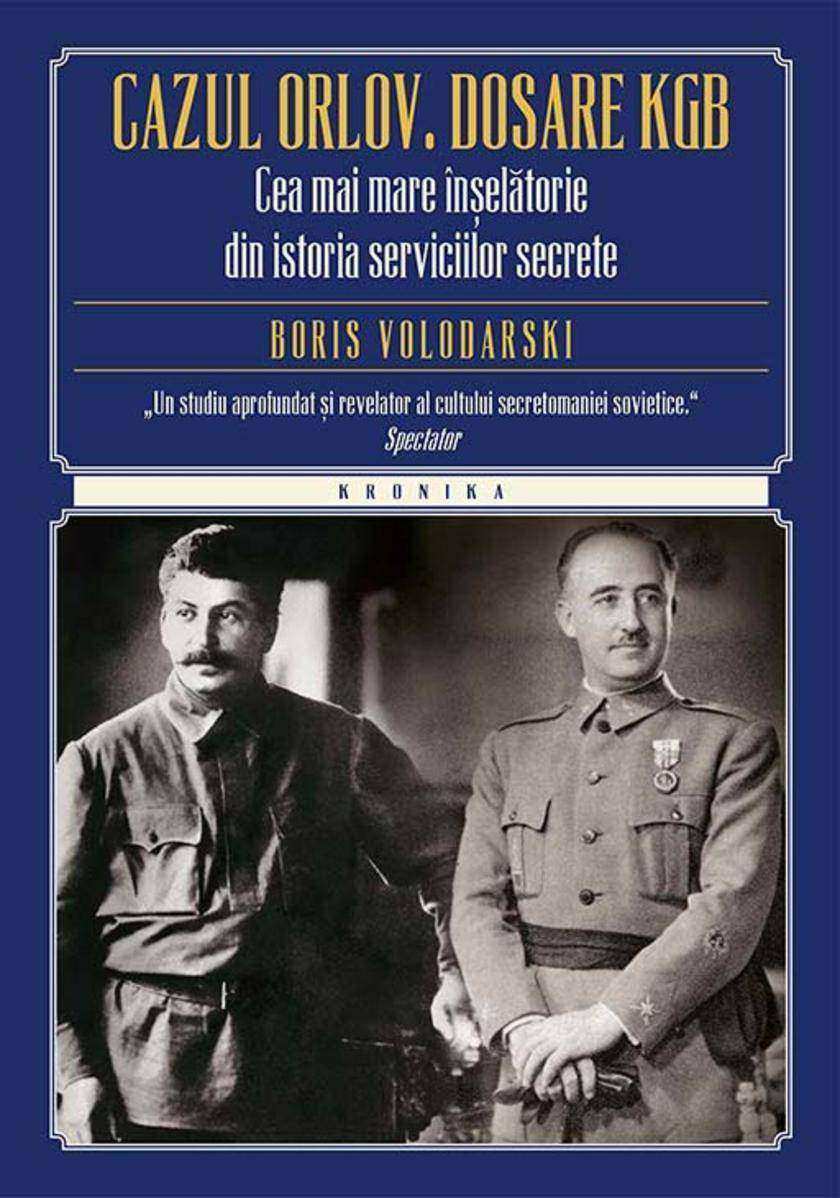
Cazul Orlov. Dosare KGB. Cea mai mare ?n?el?torie din istoria serviciilor secret
¥57.96
Suntem pe deplin convini c Nietzsche i Marea Amiaz sau aceast absolut original, curajoas Religie a Viului se vor nscrie nu numai printre exegezele importante, necesare n acest moment literaturii contemporane, ci va propune i un alt stil al interpretrii, repetm nc o dat, extrem de curajos, al autoarei, deoarece se aplic, vine n urma unor mari hermeneui, exersndu-se pe texte despre care nu se mai poate spune nimic!, ar exclama orice neofit. Acest curaj, credem noi, nc o dat, i este druit literalmente Aurei Christi, cci ea nu ezit s se scufunde n ntregime n baia fierbinte sau insuportabil de rece, de glacial, a unor texte, care, dei scrise i publicate cu un secol sau dou nainte, ne apar mereu n fa.“ (Nicolae Breban) Aura Christi construiete un religios redimensionat spre mit: ca i cum, trecnd istmul ontologic dintre pioenie i exuberan, Iisus devine Dionysos, ntr-un palimpsest cultural care pe muli i exaspereaz. Interpretarea operei brebaniene ca propunere mitic face parte din acelai registru, tot aa cum marginea diafan a mitului reapare obsesiv n numeroase alte eseuri, transformnd ntreaga carte ntr-o tulburtoare i foarte vie mitoconstrucie personal.“ (tefan Borbély)http://aurachristi.ro/
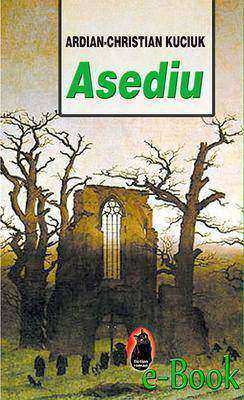
Asediu
¥38.62
Un fascinant atelier de crea?ie unde sunt convocate c?r?ile cele mai importante ap?rute ?n perioada postdecembrist?, meritul acestei monografii fiind acela de a aborda un domeniu marginalizat ?n ultimii ani ?i tratat pe nedrept ca o cenu??reas?. Rostul acestui studiu monografic este acela de a informa lectorul asupra poeziei majore scrise ?n Rom?nia, redeschiz?ndu-i apetitul pentru Poezie. Cartea se adreseaz? elevilor, studen?ilor, precum ?i publicului larg de cititori.

Un vis al inteligen?ei libere
¥53.40
Apreciat? la vremea ei pentru angajamentul ?i talentul de a media ?ntre culturi, Regina Elisabeta a Rom?niei (1843-1916) este considerat? p?n? ?n zilele noastre drept una dintre cele mai importante mediatoare ale literaturii ?i culturii rom?ne?ti ?n spa?iul de limb? german? de la sf?r?itul secolului al XIX-lea. Prin apari?ia sa neconven?ional? ca scriitoare, sub pseudonimul literar Carmen Sylva, angajat? ?n prop??irea dinastiei rom?ne, prima regin? a Rom?niei, Elisabeta, a demonstrat ?n fa?a publicului semnifica?ia modern? a ?profesiei“ de so?ie de monarh, un exemplu pe care succesoarea sa, Regina Maria a Rom?niei ?l va des?v?r?i.
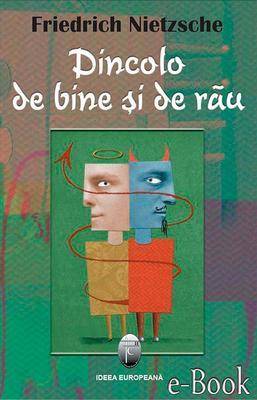
Dincolo de bine ?i de r?u
¥46.36
Schlesak l combin pe Bakunin cu Marx i era sedus de modelul politic iugoslav. “Teoria tnrului Marx (preluat de la Hegel): realizarea i autorealizarea.“ Dictatura i aprea nc umana, aproape de o forma de realitate i de trirea autentic. Libertatea occidental ar fi creat doar un context amorf. n acest inacceptabil context, nu caut o ieire practic, optnd pentru una teoretic, teoria fiind suficient siei i dizlocnd tot restul. “Nu de soluii, ci de utopii, de ieiri, de asta avem nevoie.“ (dec. 1971) epeneag nu gndea diferit. i el definea contextul social i politic n termeni identici. Accepta i modelul iugoslav. i gsea calitatea de a fi joncional. “Iugoslavia poate juca rolul de punct de contact.“ Nu degeaba se spune: Historia magistr vitae! Istoria (realitatea, contextul) dicteaz modurile de a gndi, prea puin retrospectiv, vag proiectiv, ntr-un prezent tranzitoriu, amorf i (n)formal. La 12 august 1973, urma modelul ceh, “opoziie pe fa“ i-i schia corespondentului su un plan de colaborare.“Un eseu incitant despre unul dintre cei mai importani scriitori romni de expresie germana, stabilii n Italia.
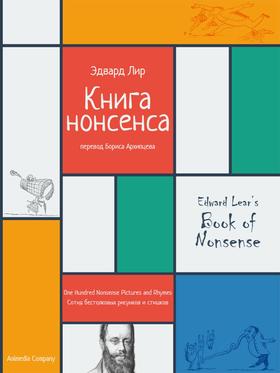
Книга нонсенса
¥23.14
Este un autoportret al cunoa?terii personale, un autoportret schi?at ?n timp real, sub ochii cititorului, pe m?sura ce Lara ia cuno?tin?? de st?rile emo?ionale prin care trece, ??i analizeaz? sentimentele, rezultatul posibilelor ac?iuni, analizeaz? deciziile pe care le ia, consecin?ele posibile. Dilema declarat? a Larei este: cum ?mpaci nevoia inimii pentru noutate, pentru tr?iri spontane, cu monotonia mariajului, chiar dac? acesta e fericit? Con?tiin?a sa este prins? ?ntre dragostea pentru so?ul cu care ?tie c? se potrive?te ca structur? ?i pe care ?l iube?te, ?i efervescen?a aventurii cu un alt b?rbat, care ?i furnizeaz? spontanul dup? care t?nje?te. Romanul se concentreaz? pe amant ?n mod deliberat. Lara este perfect con?tient? de r?ul pe care ?l produce celor trei personaje ?mplic?te: so?, amant, ?i ei ?ns??i. Perioada ?n care este creat ?i definitivat autoportretul sunt ultimii ai comunismului, anii ?n care priva?iunile impuse popula?iei sem?nau mai degrab? cu priva?iunile unui r?zboi. Cu toate acestea, eroina se concentreaz? cu ?nc?p???nare pe iubirea ei, pe mi?c?rile sufletului ei, refugiindu-se ?n tr?irile proprii ?i reu?ind astfel s? se salveze de autocomp?timire ?i s? supravie?uiasc? ?ntr-o aparent? normalitate.
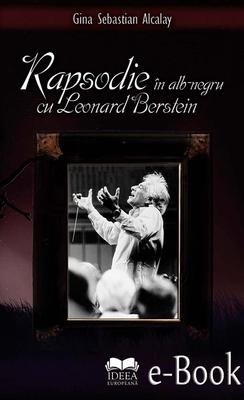
Rapsodie ?n alb-negru cu Leonard Berstein
¥61.83
Pata-Tata. ?ah nu este o carte de critic? literar?, nu este un experiment critific?ional hibrid, nu este nici o fic?iune pur?, ci este, ?n cel mai autentic sens pe care ?l permite literatura ast?zi, confesiunea unei sensibilit??i ?b?ntuite“. Despre paginile care ??i ?ntind umbrele prelungi asupra propriei vie?i ?i despre absen?ele care se strecoar? imperceptibil din autobiografic ?n c?r?ile pe care le cite?te, Diana Adamek scrie ?ntr-o tonalitate silen?ioas?, hipnotic?, cu talentul incontestabil al unui romancier. Evit?nd conven?iile obosite ale textualismului, sau problematiz?rile conceptuale ale teoriei literare, Pata-Tata. ?ah este romanul unei credin?e poetice care configureaz? deopotriv? spa?iul clipei vii ?i cel al memoriei livre?ti ?n liniile de for?? ale unei vibra?ii pasionale. ?ntre c?r?ile rom?ne?ti ale primului deceniu, acest eseu confesiv al Dianei Adamek r?m?ne cea mai patima?? ?i mai provocatoare m?rturie de credin?? a unui cititor avizat, ?i, dup? cum avea s? se dovedeasc? c??iva ani mai t?rziu, a unui excep?ional prozator.Ovidiu Mircean
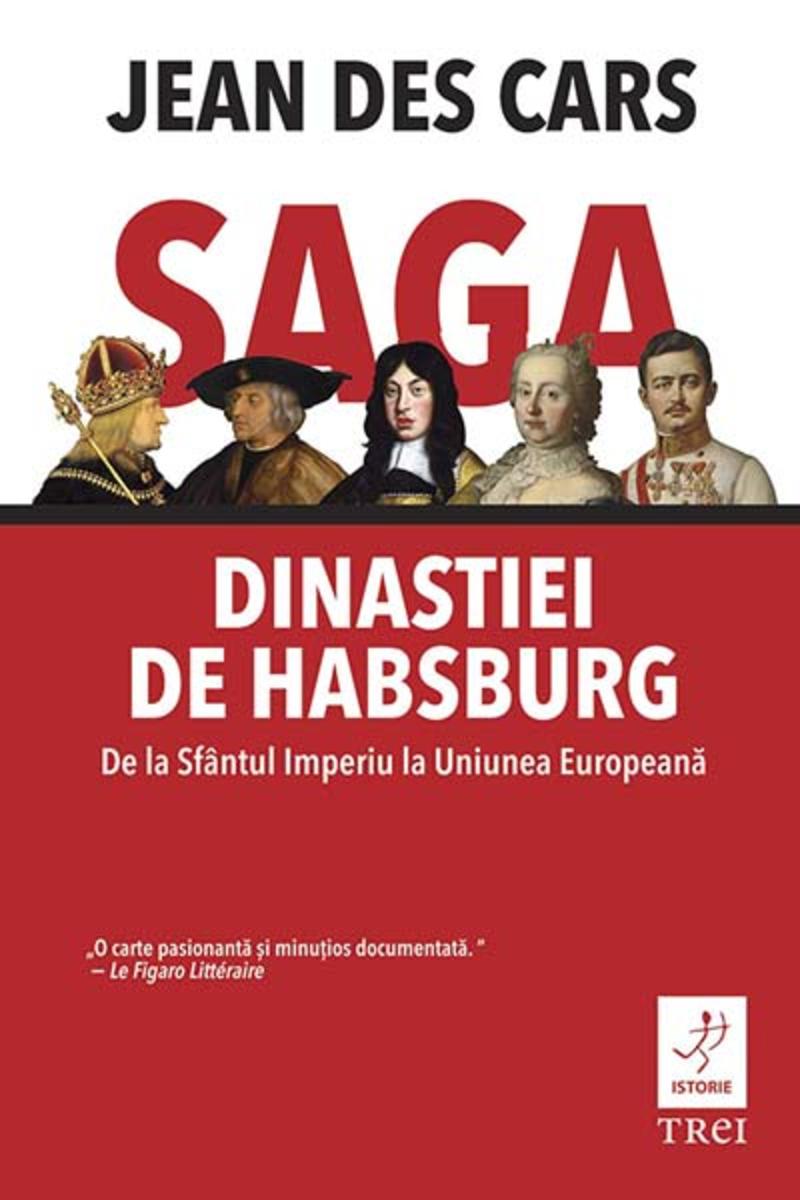
Saga dinastiei de Habsburg. De la Sf?ntul Imperiu la Uniunea European?
¥90.84
Romanele Aurei Christi, ample construc?ii epice, abordeaz?, cu un curaj ?i maturitate rar?, modelul ?i aria expresiv? ?i ideatic? a romanului de reflexivitate ?i problematic? grav?, uman?, de la M. Proust ?i Th. Mann, sub tutela impresionant?, infinit? ?i enorm expresiv? a lui F.M. Dostoievski. Acela?i, Dostoievski, de data asta al?turat lui Friedrich Nietzsche, face obiectul unor ample studii eseistice, pe care Aura Christi le-a conceput ?i publicat ?n ultimii ani, abord?nd teme de o rar? ?ndr?zneal? ideatic?, problematica esen?ial? a individului ?n abisalitatea sa, a Fiin?ei, arta complicat?, prezent?nd ?nc? nu pu?ine mistere ?i paradoxuri psihologice ale tipologiei romane?ti moderne, de la cu adev?rat revolu?ionara ? la recherche du temps perdu la Idiotul ?i Crim? ?i pedeaps?.?n publistica ei curent?, sus?inut?, Aura Christi sprijin?, polemic adeseori, cultul valorilor clasice ?i moderne europene ?i refuz? improviza?iile ?i impostura literar? care, ?n actualitatea post-comunist?, tresare ?n c?mpul literar rom?nesc ?n varii forme, de la contestarea, de plano, a marilor modele moderne lirice ale continentului ?i cultivarea unui mizerabilism ?i a brutalit??ii expresiei ce se cufund? ?i abund? nu rareori ?n tonuri suburbane, sclipind triumf?tor ?n accente arogante ce vor s? instaleze un fel de triumf al tinere?ii ?protestatar-revolu?ionare“ culturale ?i preiau, f?r? sim? critic, ?ntr-o afi?at? incultur? poetic?, cu o anume voluptate, simboluri ?i expresii france, voit pornografice, din recuzita avangardist? ?i futurist? a literaturii ?nceputului de secol XX. (Nicolae Breban)O mistic? de halou dostoievskian domin? obsedant destinele eroilor din romanul Aurei Christi, Cercul s?lbatic. (…) E, ?n felul s?u, un roman al cuplurilor ce se fac ?i se desfac, se men?in c?t ?i cum se men?in ?n virtutea unor automatisme ?n care iubirea este c?utat?, mimat?, tr?dat?, ea r?m?n?nd mereu o iluzie sau o speran?? virtual?, ?ntre via?? ?i moarte. Se vorbe?te mult despre moarte ?n acest roman. Existen?a ?ns??i e parcurs? sub semnul acesteia. (Constantin Cuble?an)Poate aici este imensul merit al Cercului… M-a supus unui exerci?iu deloc facil de a formula motive pentru care merit? s? tr?ie?ti. ?i nu ?n fa?a unui om care ur??te via?a, n?uc, sau e dezgustat de ceea ce i se pare a fi via?a. Ci ?n fa?a acestei fete-femei, Diana, care caut? profund sensul, care iube?te florile, apa, arta. At?t de plin? de via?? e creatura aceasta (…), ?nc?t preaplinul acesta o consum? ?i o arunc? ?n moarte. Diana arat? c? nu e simplu s? tr?ie?ti la altitudinea aceea uria?? a foamei de via??, a puterii uria?e de a tr?i. Setea ei de via?? ?i frumuse?e ?i lini?te o expune, o face fragil?… Naufragiul ei e produs de apele grele ?i ur?te ale unei lumi neatente, nep?s?toare p?n? la agresiune fizic?… O lume de fiare, ?n care nimeni nu ofer? protec?ie puilor. O lume hulpav?, ?n care fluturii ?i puii de c?prioare sunt r?pu?i, ?nghi?i?i, ca ?i c?nd… Poate pentru asta s-au n?scut… Poate Dumnezeu ?i cheam? la el… Sau poate nu! Poate o imens? responsabilitate ar trebui luat? pe umerii mei ?i nu numai ai mei! Poate c? oamenii frumo?i, ca Diana, au o for?? neb?nuit? ?n fragilitatea lor. Poate c? nimic nu se poate face pentru adolescen?ii care aleg moartea… Poate nimic nu se poate face ?mpotriva mor?ii… (Irina Ciobotaru) http://aurachristi.ro/
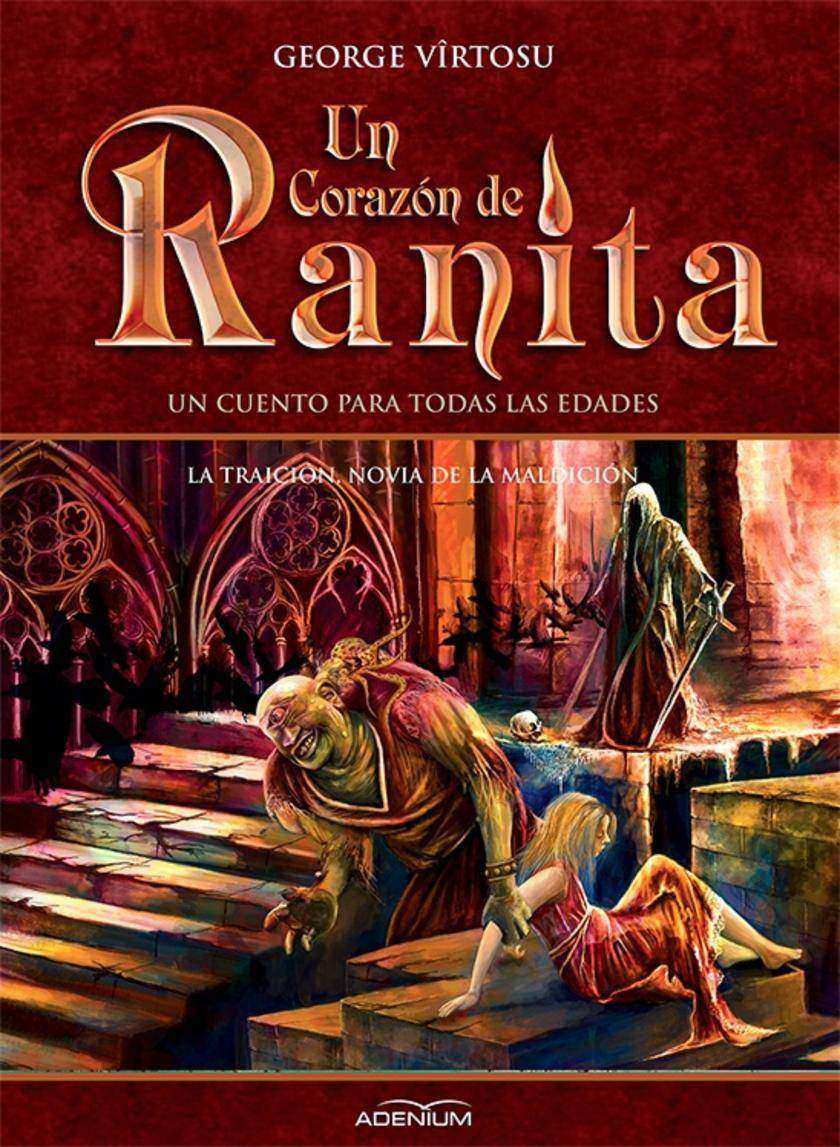
Un Corazón de Ranita. 5° volumen. La traición, novia de la maldición
¥55.34
Titlul se refer? la ceea ce autorul c?r?ii consider? esen?a mitului faustic: surmontarea limitelor cunoa?terii ?i tenta?ia spre ceea ce exist? dincolo, necunoscutul sau imposibilul ?n ordinea normal? a lumii. Tenta?ia limitei ?i limita tenta?iei este o investigare critic? a ideilor ?i motivelor din perspectiva unui comparatism orientat spre filosofie ?i estetic?, pe care profesorul universitar clujean, Vasile Voia, l-a practicat consecvent ?n cariera sa.
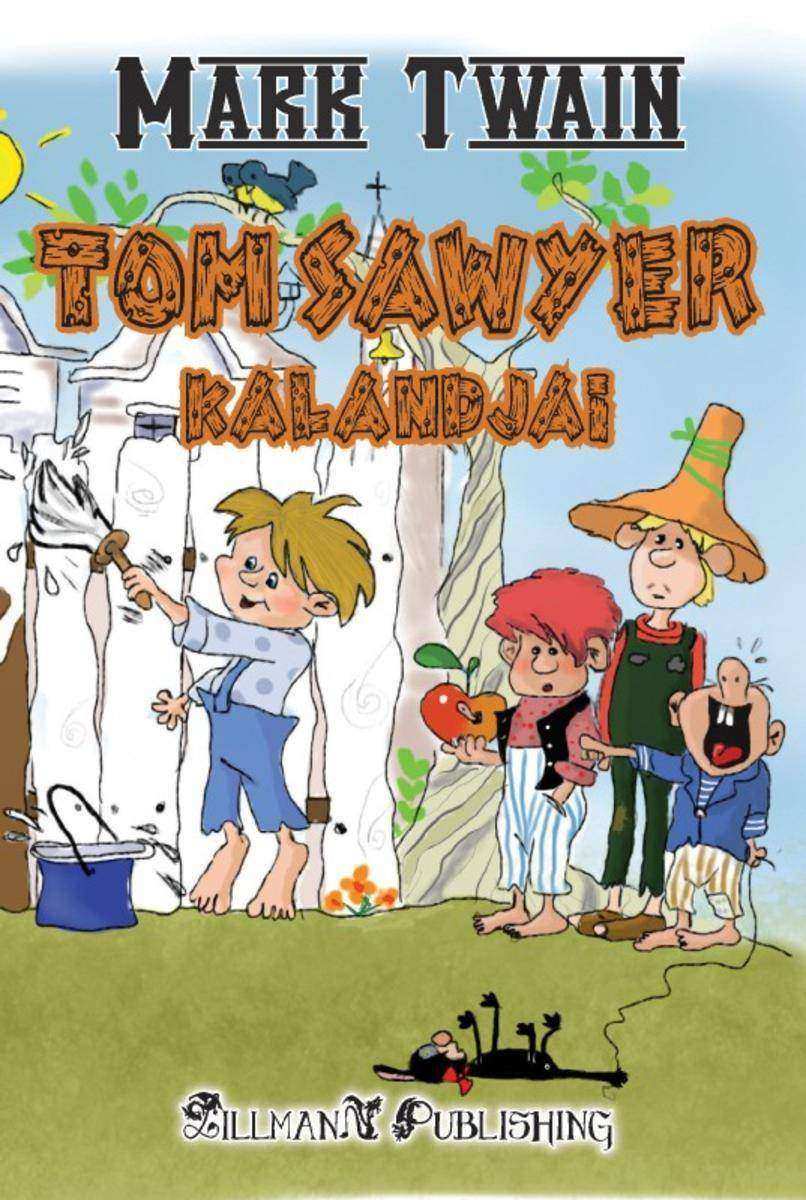
Tom Sawyer Kalandjai
¥16.27
O ilustrare elocvent a poziiei pe care poetul Vasko Popa o ocup, la ora actual, pe plan mondial, este faptul c Barack Obama, n campania sa electoral pentru preedenia SUA (pe care a i ctigat-o), a afirmat, n 27 octombrie 2008, pe blogul Fundaiei internaionale Harriet, c poetul su preferat este Vasko Popa cu volumul Cutia mic, fiindc Vasko Popa: Este contient i responsabil de lumea n care triete i de propriul sine“. Nici John McCain nu s-a dus prea departe, preferndu-l pe confratele lui Vasko i, pn la un punct, modelul su – Henri Michaux. Aceasta este partea bun i frumoas a lucrurilor, care se datoreaz celor doi stlpi de susinere internaional a lui Vasko Popa, de aducere permanent a poeziei lui Popa n spaiul vast, universal, al limbii engleze: Anne Pennington, traductoarea i prietena familiei Popa (ale crei traduceri, i dup moartea ei, sunt, n continuare publicate), dar mai ales Charles Simic, unul din poeii americani de frunte, de origine srb (a emigrat n SUA la aisprezece ani), ctigtorul Premiului Pulitzer n anul 1991, i care n-a ncetat nici o clip s susin destinul de poet universal al lui Vasko Popa. De cealalt parte ns, politicul a jucat i n cazul lui Popa, ca i n cazul altor lideri, fie ei i formatori de opinie poetica, un rol nefast...“Liubia Raichici

Paradoxul obezit??ii. Kilogramele ?n plus. Avantaje ?i dezavantaje
¥73.49
Am adunat n aceast carte momente din viaa public, ncercnd s refac, din ceea ce a selectat memoria, traseul profesional care m-a adus de la catedra de fizic la ipostaza de candidat pentru preedinie. Am inclus n ea i lucruri personale, dar nu am fcut-o neaprat pentru a rspunde curiozitii celorlali. Am recuperat acele ntmplri, ntlniri sau detalii care au spus ceva despre felul n care m-am format, despre valorile pe care le-am preuit. Identitatea mea personal a umplut, prin intermediul faptelor, dar i prin aceste principii n care am crezut, rolul de persoan public pe care l-am ocupat mai bine de paisprezece ani. Momentele n care am descoperit un adevr, intervalele n care am nvat lucruri importante, despre mine sau despre oamenii din jurul meu, i-au adus de fiecare dat ceva i profilului meu public. Tot ceea ce am dobndit i tot ceea ce am neles de-a lungul unei viei cu destul de multe mpliniri a lucrat n sprijinul profesionistului care am vrut s ajung. Viaa mea privat a fost, pentru cei mai muli, invizibil. De fapt, ca orice om, mi-am folosit n public tot ceea ce am descoperit ca fiind valoros n viaa simpl, de zi cu zi: calmul, discreia, nelegerea. Au fost bunuri preioase, pe care am vrut s le protejez ca s le pot cultiva n continuare. Nu cred c, dezvluindu-le sursa, le pun n pericol.“ Klaus Iohannis
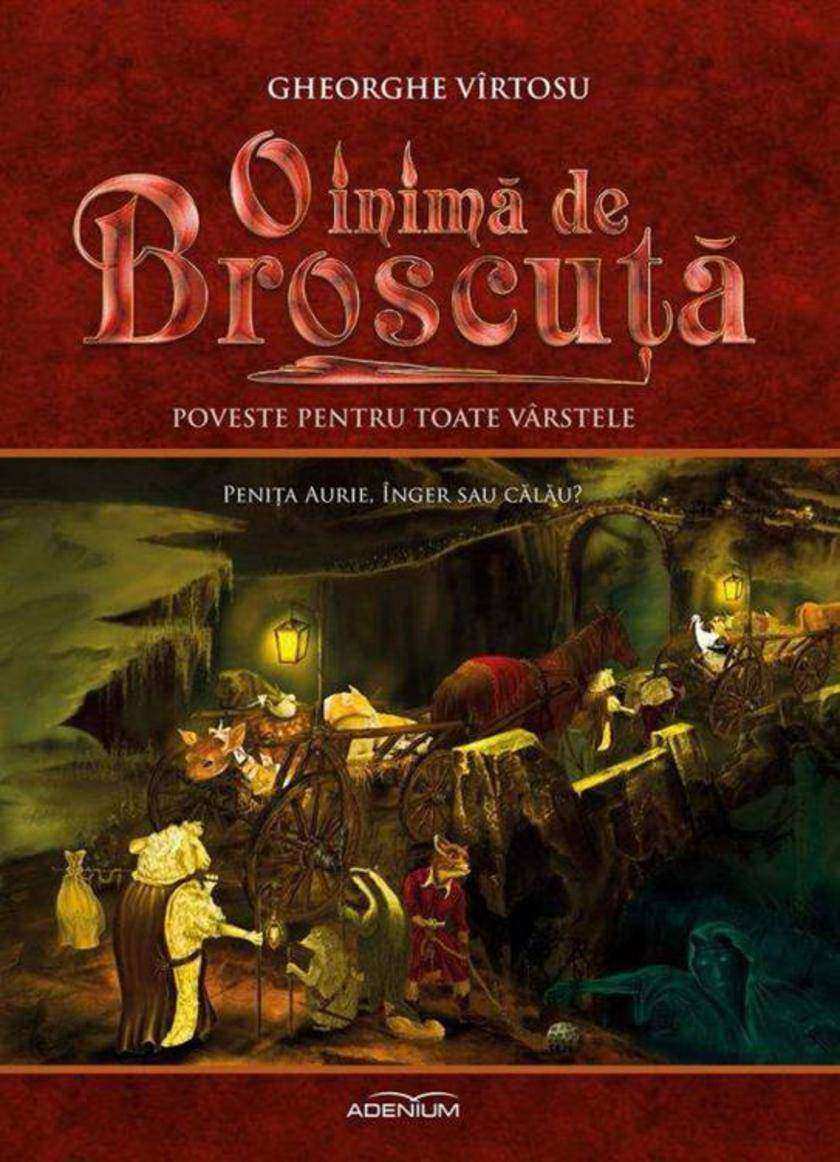
O inim? de Broscu??. Volumul 1. Peni?a aurie, ?nger sau c?l?u?
¥48.97
O confesiune ?i o medita?ie despre mediul evreiesc din Rom?nia de dup? al doilea r?zboi mondial, pornind de la propria experien?? ?i biografie a autorului, ?n prezent conferen?iar la Universitatea Ebraic? din Ierusalim. Av?nd ca nucleu un dialog cu t?n?rul filozof Sandu Frunz?, de la Universitatea din Cluj, cartea reconstituie via?a evreilor din Ia?i (ora?ul natal al autorului), de dup? r?zboi, adolescen?a ?n perioada stalinist?, dilemele ?i reflec?iile stimulate de op?iunile mediului evreiesc din Rom?nia ?n noile condi?ii de dup? r?zboi, av?nd de ales ?ntre integrarea ?n viata social? ?i intelectual? rom?neasc? marcat? de tenta?ia ?i pervertirea comunist? sau, dimpotriv?, alternativa stabilirii ?n Israel. O semnificativ? parte a c?r?ii se concentreaz? asupra evolu?iei acelor intelectuali evrei care au p?r?sit Rom?nia ?n perioada ceau?ist?, dificult??ile ?i dramele adapt?rii la o noua ambian?? cultural?, ca ?i complexa rela?ie cu mediul ?i cultura ?n care s-au format. Pe parcursul a c?teva decenii, amintirile ?i reflec?iile autorului reconstituie, dintr-un unghi inedit ?i foarte personal, mediul universitar ie?ean, ca ?i universul spiritual al intelectualilor israelieni originari din Rom?nia.O medita?ie despre comunism ?i antisemitism, despre dramele dublei apartenen?e culturale, despre emigra?ie, despre tensiuni ?i interferen?e rom?no-evreie?ti, despre lumea v?zut? de la Ia?i ?i de la Ierusalim.
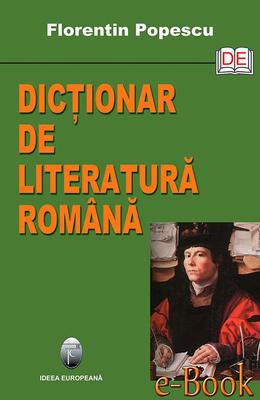
Dic?ionar de literatur? rom?n?
¥61.83
Editorul, criticul ?i istoricul literar clujean Irina Petra? propune lectorilor un studiu despre locurile favorite din literatura rom?n? ?i cea universal?, paginile de teorie literar? oferind nu pu?ine repere asupra predilec?iilor clasicilor autohtoni de la Eminescu ?i Creang? p?n? la Norman Manea ?i Marta Petreu. Cartea se adreseaz? elevilor, studen?ilor, precum ?i publicului larg de cititori.

Existen?a diafan?
¥77.31
De la fulminantul s?u debut ca poet ?i teoretician al futurismului, Vladimir Maiakovski s-a dovedit a fi un n?valnic emanator de energii artistice, ideatice, un generos creator de metafore surprinz?toare, ?nc?t cople?ea, hipnotiza o parte a publicului; las? cu gura cascat? sute ?i sute de in?i… Era un adev?rat retor (cu ?glas de arhidiacon“, cum scria Pasternak) al noii literaturi, al futurismului rus; retor clam?nd ?n gura mare!… Acest poem tot Pasternak l-a definit ca fiind un ?nemuritor document din preclipele mor?ii“… Vladimir Maiakovski face parte din spi?a nu prea numero?ilor poe?i c?rora li se potrive?te calificativul de uria?. (Leo Butnaru)
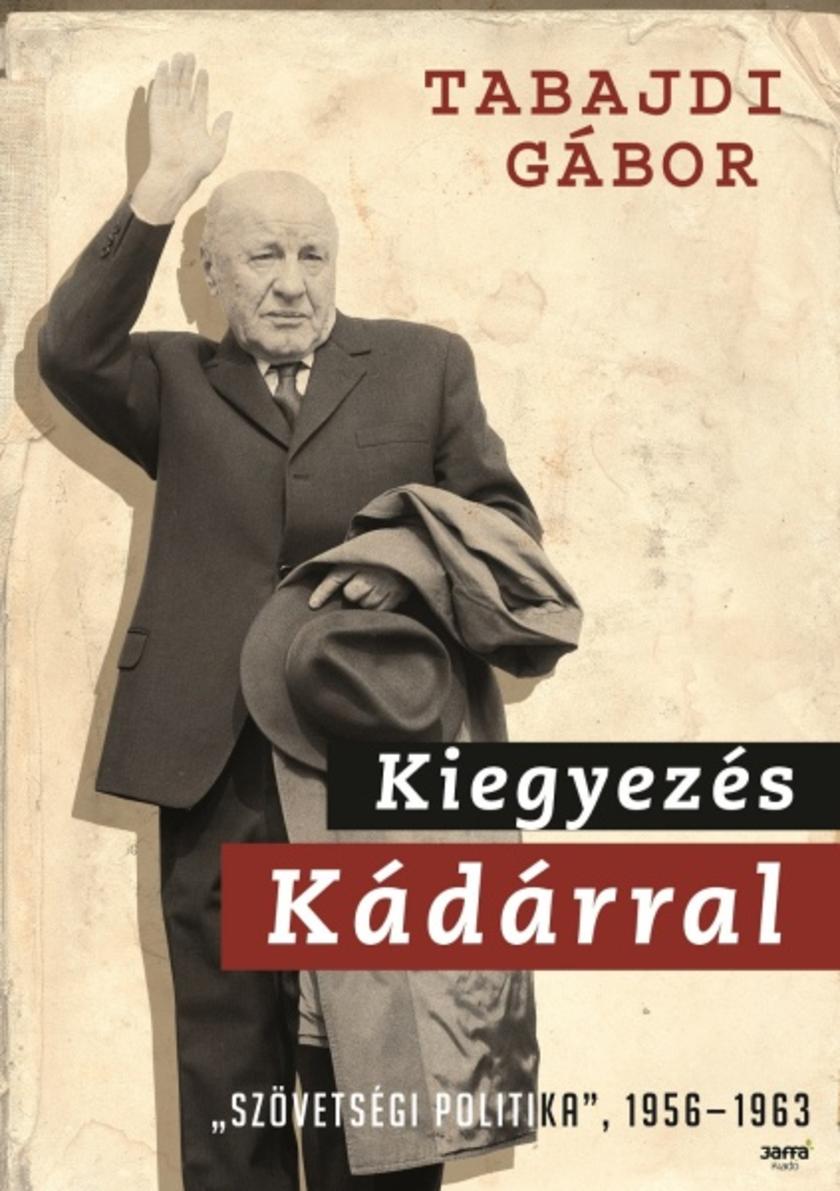
Kiegyezés Kádárral
¥57.31
Poeta, eseista ?i prozatoarea Aura Christi propune o radiografie a vie?ii literare ?i a celor mai interesante c?r?i ap?rute ?n ultimul deceniu literar. Cartea se adreseaz? elevilor, studen?ilor, precum ?i publicului larg de cititori.




 购物车
购物车 个人中心
个人中心



